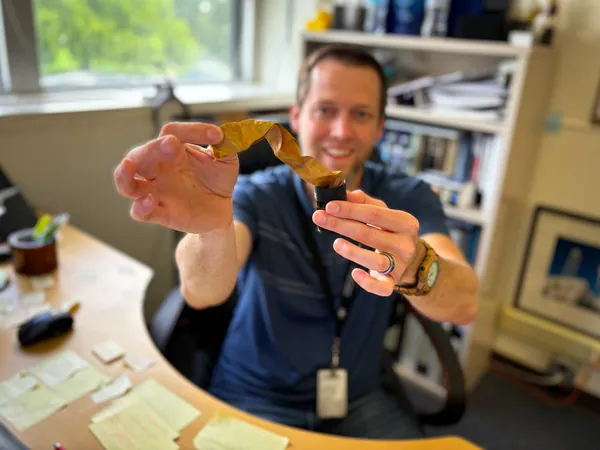
Could Ionic Liquids Be the Key to Life Beyond Earth?
2025-09-03
Author: Emma
Water Isn't the Only Player in the Game of Life
Water is often regarded as the essential ingredient for life on Earth. However, recent research suggests that it may not hold the same significance across the universe. A groundbreaking study from MIT reveals a fascinating alternative: ionic liquids, which could serve as biological solvents in extreme environments.
What Are Ionic Liquids?
Ionic liquids are salts that remain liquid at around room temperature, composed entirely of charged ions. Their unique properties make them appealing candidates for supporting life. These liquids possess polar characteristics, allowing them to dissolve other polar molecules, including vital biological compounds such as enzymes.
Extending the Habitable Zone
One of the most intriguing aspects of ionic liquids is their stability in high temperatures—far beyond the boiling point of water. This means that, when considering these solvents, the habitable zone of stars expands, potentially including planets previously ruled out due to their scorching temperatures or sparse atmospheres.
From Experiments to Discoveries
The researchers' quest began with an experiment aimed at identifying organic compounds in Venus's sulfuric acid-laden atmosphere. They discovered that when trying to eliminate sulfuric acid by evaporation, an unexpected reaction occurred: their glycine combined with the acid to create an ionic liquid. This lightbulb moment prompted them to explore how these liquids could form in conditions similar to those of distant planets.
Implications for Astrobiology
While ionic liquids rarely form naturally on Earth, they can emerge under specific circumstances, such as when sulfuric acid interacts with organic materials—found on many celestial bodies from comets to the dwarf planet Ceres. Researchers replicated this process in a controlled environment using basalt—a material representative of planetary surfaces—confirming the stability of ionic liquids under various temperatures and pressures.
Harnessing Harsh Environments
While space poses harsher conditions than lab settings, the researchers are optimistic. They believe that excess sulfuric acid can be absorbed into rock pores, while radiation can be mitigated by magnetic fields or protective rock formations. Such developments bring us closer to understanding the diverse forms that life might take in the universe.
A New Horizon for Astrobiologists
This research not only uncovers potential new biological solvents but also expands the horizons for future astrobiological missions. While it stops short of confirming extraterrestrial life, it certainly opens the door for fresh approaches in the ongoing quest for life beyond Earth.









 Brasil (PT)
Brasil (PT)
 Canada (EN)
Canada (EN)
 Chile (ES)
Chile (ES)
 Česko (CS)
Česko (CS)
 대한민국 (KO)
대한민국 (KO)
 España (ES)
España (ES)
 France (FR)
France (FR)
 Hong Kong (EN)
Hong Kong (EN)
 Italia (IT)
Italia (IT)
 日本 (JA)
日本 (JA)
 Magyarország (HU)
Magyarország (HU)
 Norge (NO)
Norge (NO)
 Polska (PL)
Polska (PL)
 Schweiz (DE)
Schweiz (DE)
 Singapore (EN)
Singapore (EN)
 Sverige (SV)
Sverige (SV)
 Suomi (FI)
Suomi (FI)
 Türkiye (TR)
Türkiye (TR)
 الإمارات العربية المتحدة (AR)
الإمارات العربية المتحدة (AR)